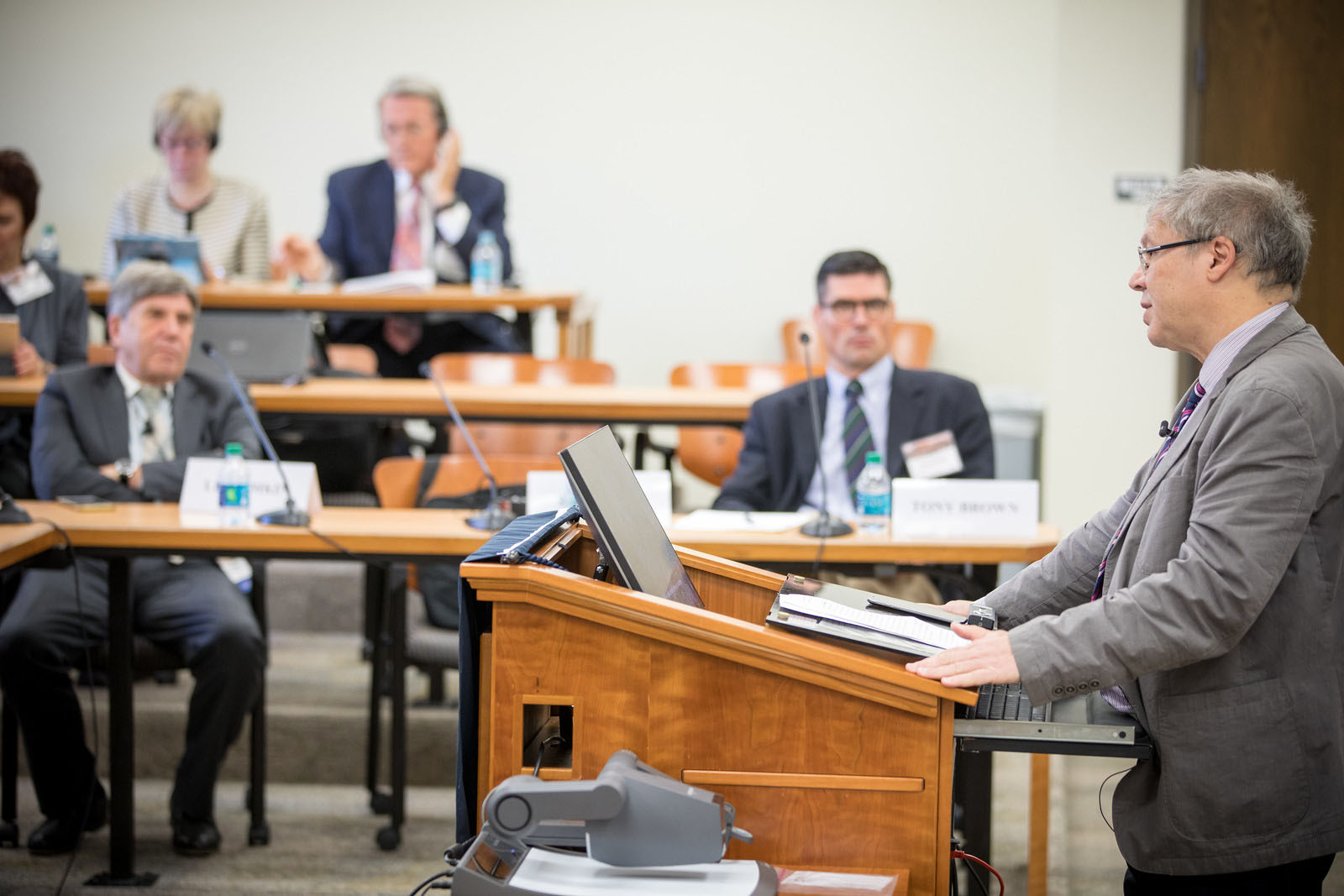Symposium 2017: Russia

by Melissa Hartman, BYU Law Student and Symposium Volunteer
The breakout session on Russia was held Tuesday, October 3, 2017 and moderated by Tony Brown, professor of German and Russian at Brigham Young University. It included panelists Nikolai Shaburov, professor at the Russian State University for the Humanities, and Lev Simkin, professor of law at the Russian State Academy of Intellectual Property.
Professor Shaburov described Russia’s current religious climate where religions are viewed as though in a hierarchy, with the Orthodox religion occupying the highest position and religions viewed as “non-traditional” occupying the lowest positions. This non-traditional classification applies mostly to religions that have not been present in Russia for centuries, such as Scientology, Jehovah’s Witnesses, the Pentecostal and Baptist religions, and Mormonism. These are seen as competing with traditional religions and destroying the stability of society. Therefore, the Russian government has imposed restrictions upon these religions. For instance, Yarovaya law restricts missionary activity in the country. Furthermore, the Russian Supreme Court refuses to recognize Scientology as a religious organization, works by founder L. Ron Hubbard have been declared extremist, and Scientologists have been arrested. The Russian Supreme Court has also declared the Jehovah’s Witness religion extremist, on the grounds they teach theirs is the only true church and other religions are false. They also declared their Biblical translation was not really a Bible in order to classify it as an extremist text. In summary, he stated these facts testify to the intensification of religious persecution.
Professor Simkin similarly spoke on trends in Russian religious policy. He characterized Russia’s government as a hybrid: part authoritarian and part democratic. He explained this hybridization process began in the 1990s when a democratic foundation was laid down. However, at the turn of century, neither the authorities nor the public were satisfied with this foundation, and wanted to return to life the old way. Consequentially, Russia now operates as an imitational democracy, which, Simkin asserted, is still better than not having any imitation. While there is no state agency responsible for religious issues, policy is passed by law enforcement agencies who initiate bills, and the judiciary gives deference to the actions of these enforcement agencies. Professor Simkin explained that Russia is on the threshold of a third stage, with a departure from the hybrid approach, as there are strengthening isolationist tendencies.